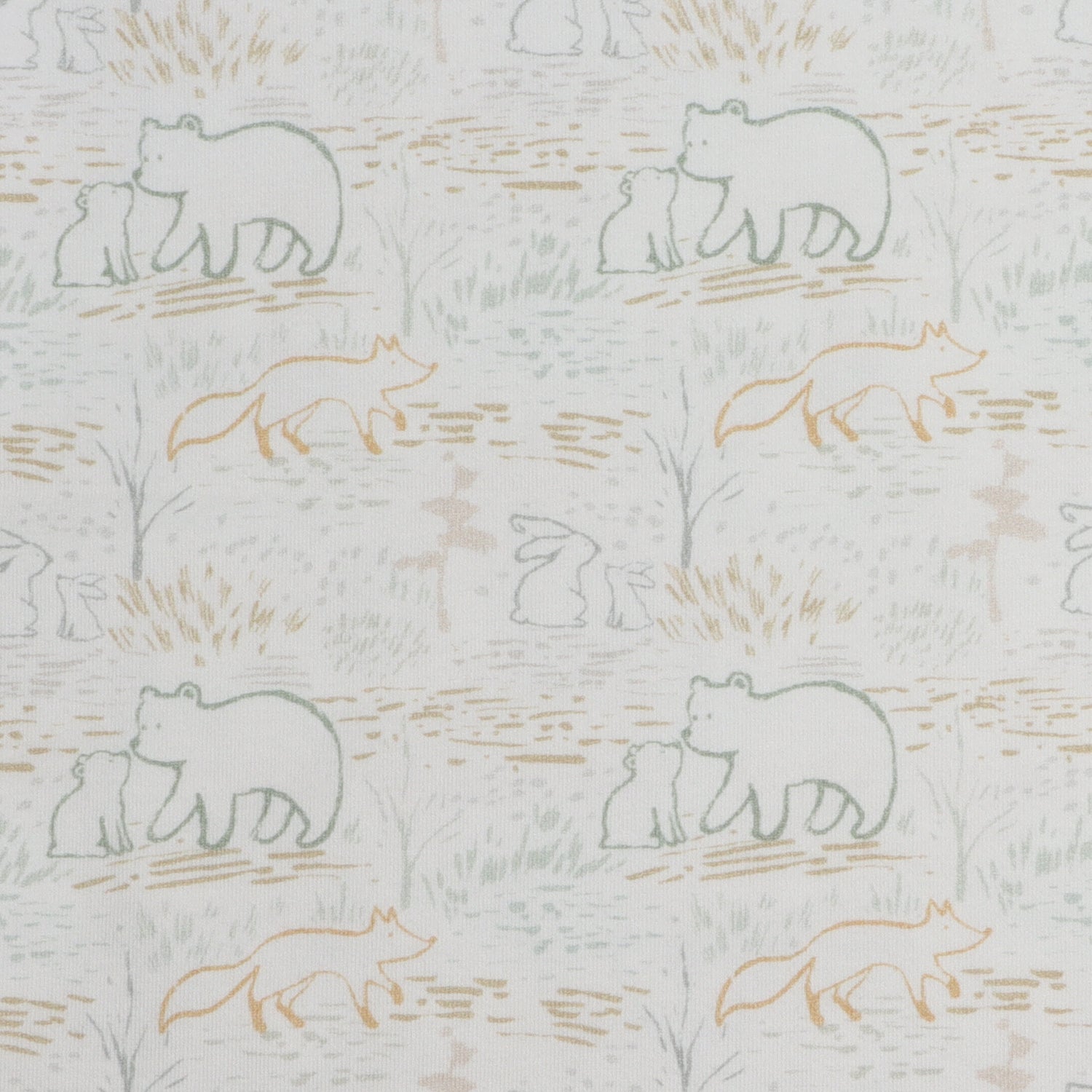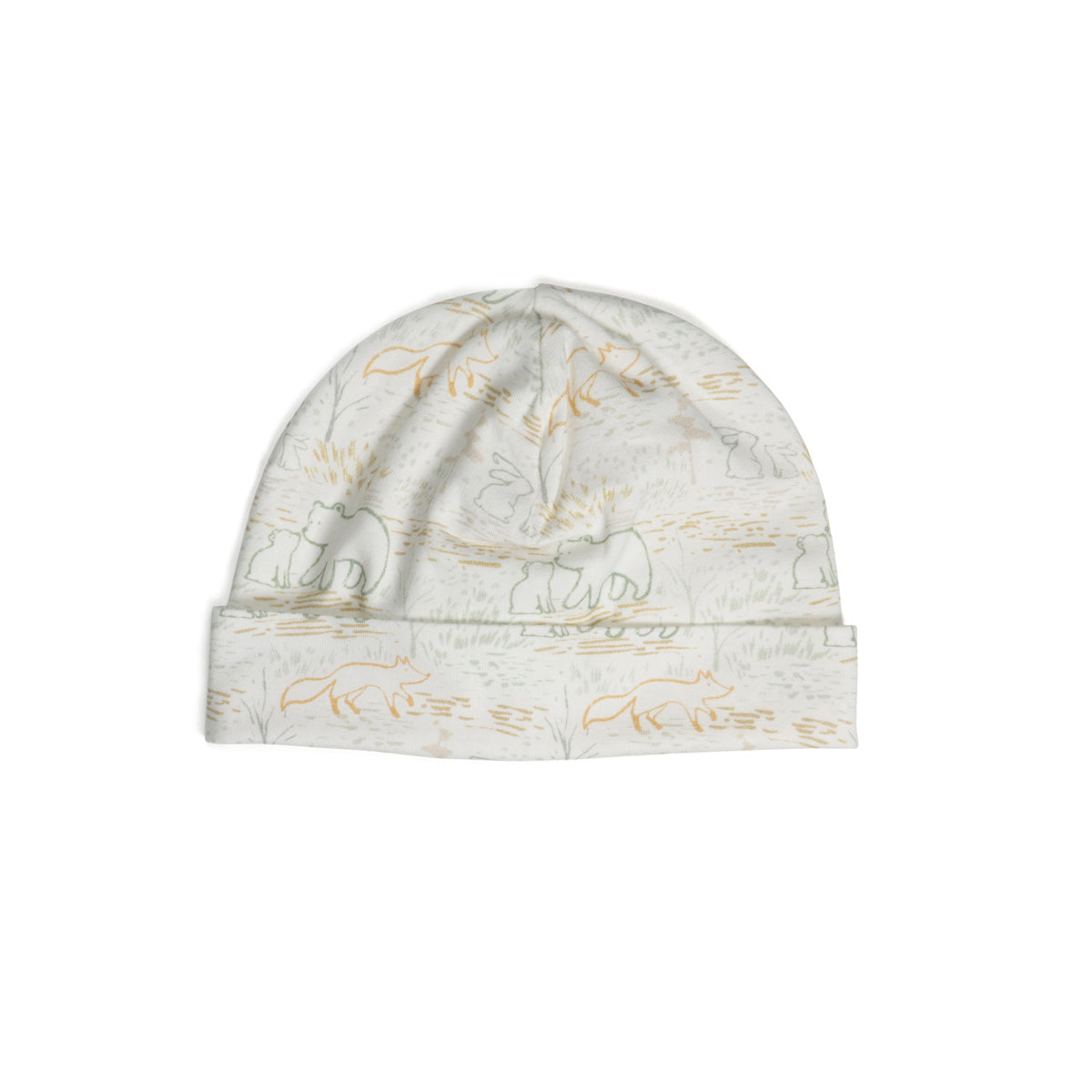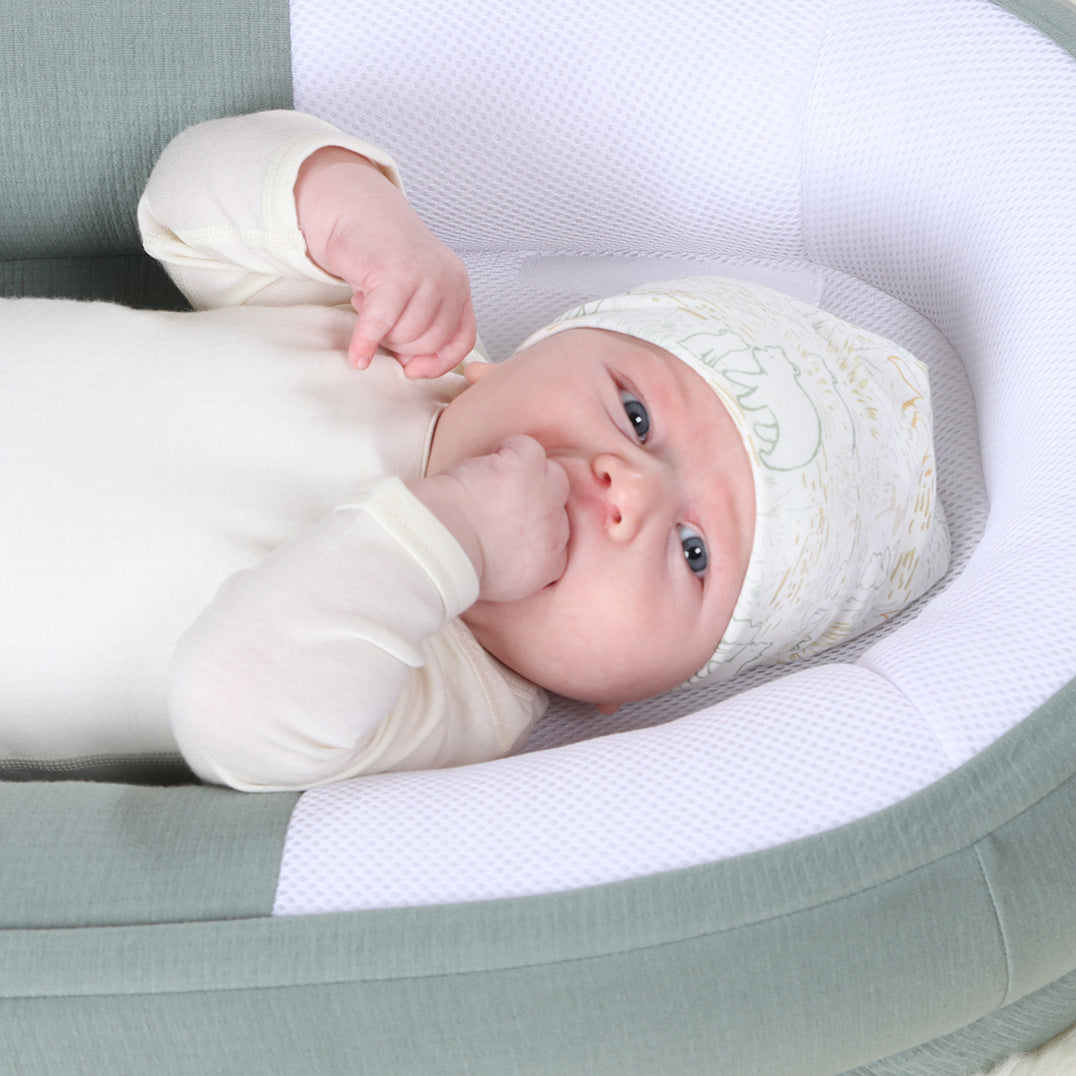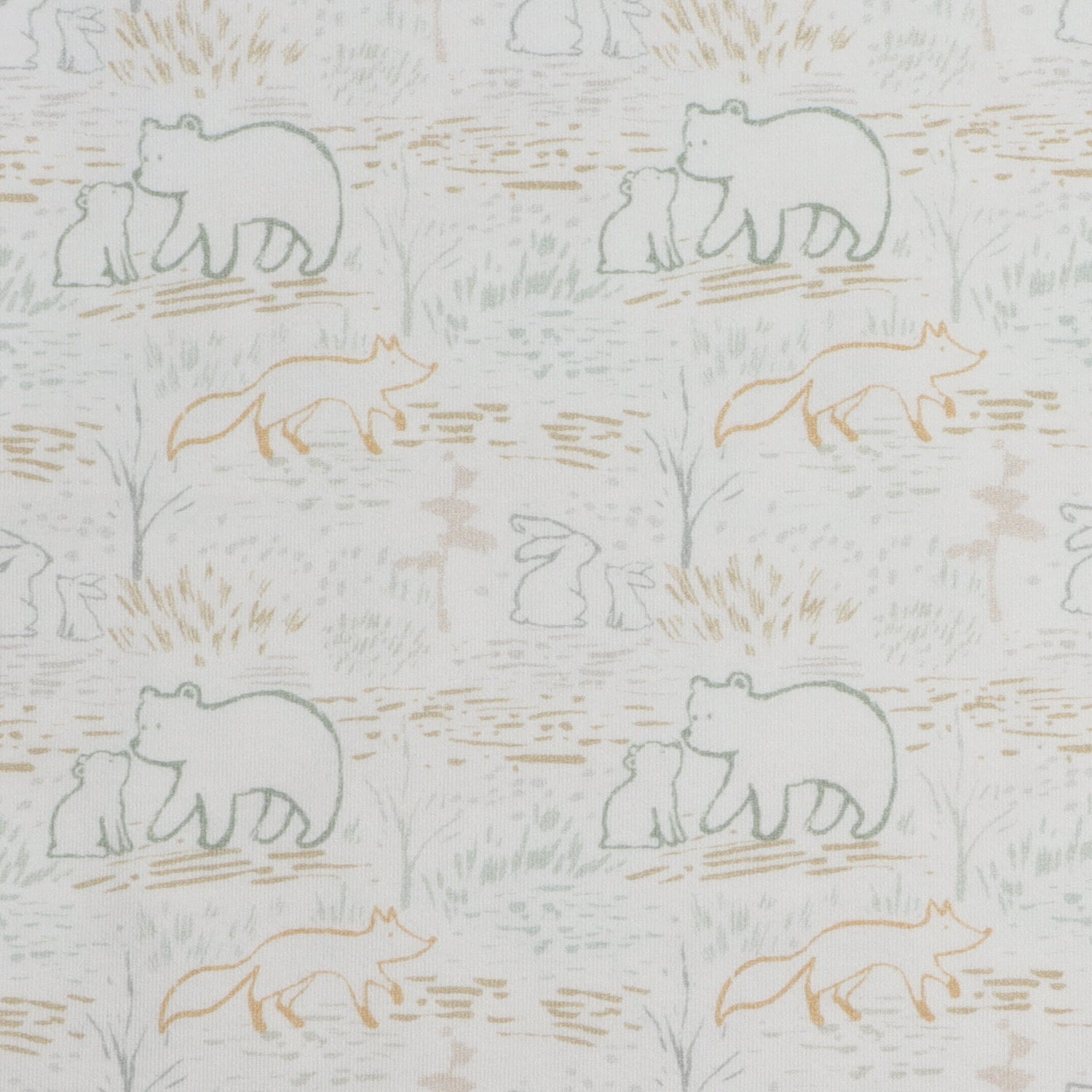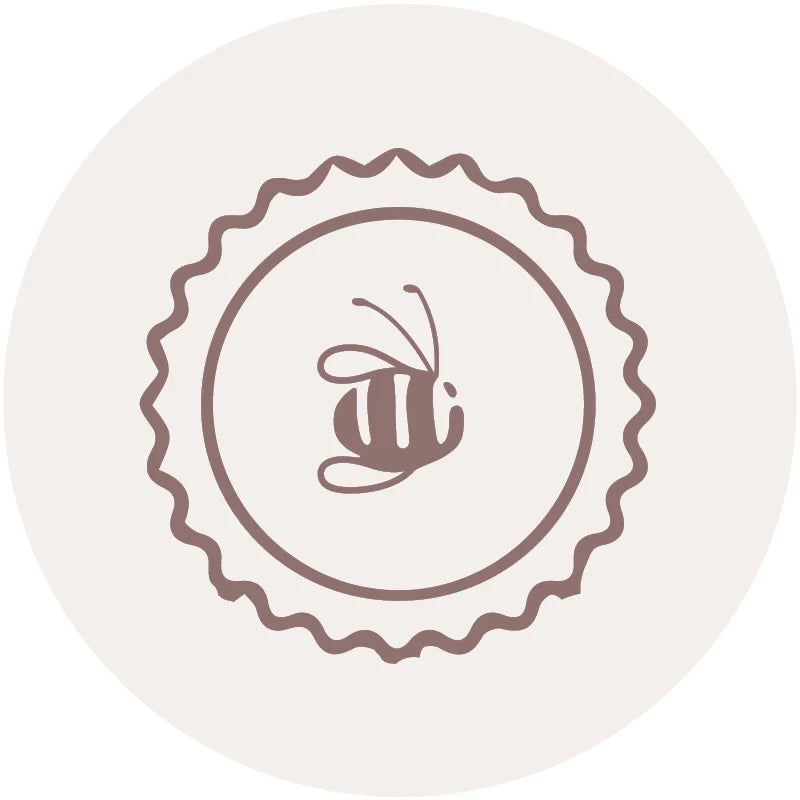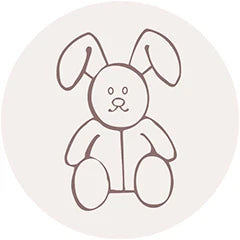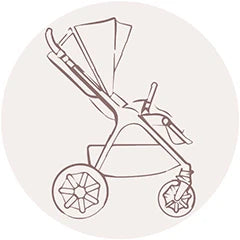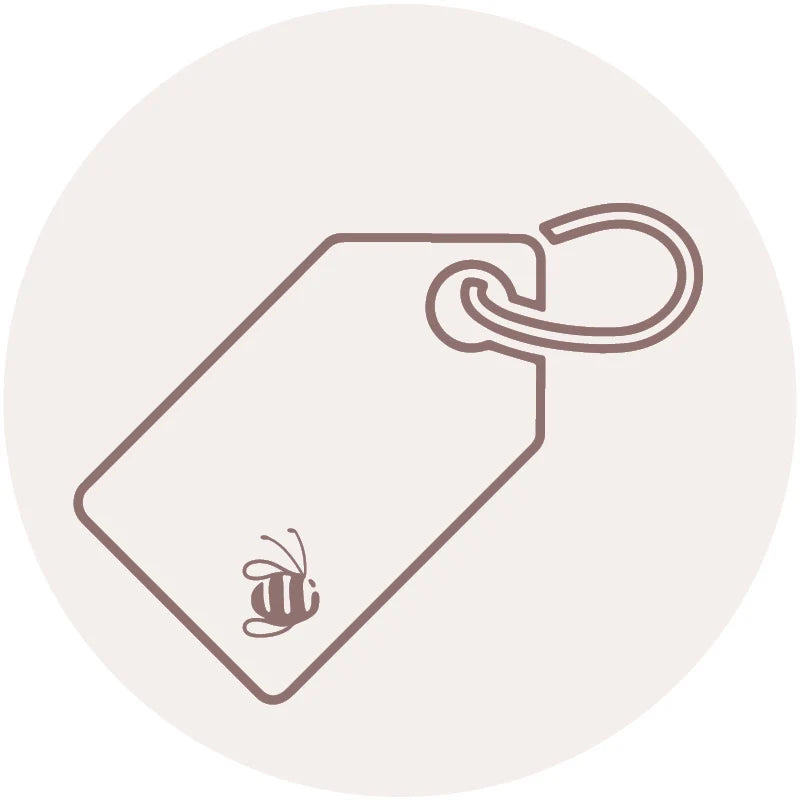Cotton Beanie
Cotton Beanie
SKU:LC1-M
Clothing Prem to 18 Months
| Size | Age Guide | Weight | Height |
|---|---|---|---|
| Premature | Premature or Small Newborn | Up to 4Kg | Up to 55cm |
| Newborn | 0-3 months | 4-6Kg | Up to 62cm |
| 3 Month | 3-6 months | 6-8Kg | Up to 68cm |
| 6 Month | 6-12 Month | 8-10Kg | Up to 76cm |
| 12 Month | 12-18 Month | 10-12Kg | Up to 84cm |
| 18 Month | 18-24 Month | 12-14Kg | Up to 92cm |
Clothing 2 to 6 Years
| Size | Age Guide | Height | Chest | Waist | Hip |
|---|---|---|---|---|---|
| 2 Year | 2-3 Years | Up to 100 cm | 56 | 51 | 58 |
| 3 Year | 3-4 Years | Up to 105 cm | 58 | 53 | 60 |
| 4 Year | 4-5 Years | Up to 110 cm | 60 | 55 | 62 |
| 5 Year | 5-6 Years | Up to 115 cm | 62 | 57 | 64 |
| 6 Year | 6-7 Years | Up to 120 cm | 64 | 59 | 66 |
Beanie Size Guide
| Size | Head Circumference | Age Guide |
|---|---|---|
| Premature | 31-35 cm | Premature or Small Newborn |
| Newborn | 35-40 cm | Newborn |
| Small | 40-43 cm | 3-6 Months |
| Medium | 43-47 cm | 6-18 Months |
| Large | 47-52 cm | 18-3 Years |
Sunhat Size Guide
| Size | Head Circumference | Age Guide |
|---|---|---|
| Newborn | 37-40 cm | Newborn |
| Small | 40-43 cm | 3-6 Months |
| Medium | 43-46 cm | 6-12 Months |
| Large | 46-49 cm | 12-24 Months |
| Xtra Large | 49-54 cm | 2-4 Years |
Sleep Pods Size Guide
| Size | Weight | Age Guide | Measurement(Back to Hem) |
|---|---|---|---|
| Newborn | 0-6 kgs | 0-3 Months | 60.5 cm |
| Small | 0-8 kgs | 3-6 Months | 66 cm |
Booties Size Guide
| Size | Age Guide |
|---|---|
| Newborn | 0-3 Months |
| Small | 3-6 Months |
| Medium | 6-12 Months |
| Large | 12-18 Months |
Pretty Brave Baby
| Foot Length (mm) | Insole Length (mm) | EU | UK | Age | INT |
|---|---|---|---|---|---|
| 95-104 | 110 | 16/17 | 2 | 0-6m | S |
| 104-114 | 118 | 18 | 3 | 6-12m | M |
| 114-123 | 127 | 19/20 | 4.5 | 12-18m | L |
| 123-137 | 142 | 21/22 | 5.5 | 16-22m | XL |
Pretty Brave 1st Walker
| Foot Length (mm) | Insole Length (mm) | EU | UK | Age |
|---|---|---|---|---|
| 114-120 | 125-128 | 19 | 3 | 1 yr |
| 120-126 | 132-135 | 20 | 3.5 | 1-2 yrs |
| 126-132 | 138.5-141.5 | 21 | 4.5 | 1-2 yrs |
| 132-138 | 145-148.5 | 22 | 5 | 2 yrs |
Crywolf Swim Nappy
| Size | Length (waist to crotch) | Crotch Width (side to side) |
|---|---|---|
| 0-1 yr | 1-2 yrs | |
| 37 | 38 | |
| 14.5 | 15.5 |
Crywolf Rash Suit
| Size | Length (back neck to crotch) | Chest (arm to arm) | Waist (side to side) | Sleeve (neck to cuff) | Neck Opening(diameter) |
|---|---|---|---|---|---|
| 6-12 Months | 1 yr | 2 yrs | 3 yrs | ||
| 40 | 42 | 44 | 46 | ||
| 25 | 26 | 27 | 28 | ||
| 24 | 25 | 26 | 27 | ||
| 30 | 31.5 | 33 | 34.5 | ||
| 13.25 | 13.25 | 13.8 | 14.3 |
In stock
Couldn't load pickup availability
Overview
Overview
Celebrate the beauty of love and connection with our Little Cub range featuring cute animal families. Soft, breathable, and full of heart, this collection is perfect for your little one’s first adventures.
These beanies are comfortable and provide extra warmth for the head which is particularly important for Newborn and young babies. These beanies stay on the head and do not ride up or slip off. A design that has been tested and proven over the years. Just ask anyone who has a Dimples Beanie!
Fit & Care
Fit & Care
Delivery and Returns
Delivery and Returns
- Delivery: Free within NZ on orders over $100 (excluding bulky items) or $8 standard shipping
- Returns: Accepted within 14 days of receipt with proof of purchase
- Some items are excluded from returns including sale items, hardware, car seats, prams, monitors and personal items - please click here for the full list.
Share this product
Recently viewed products
Related Blogs
A Guide to Baby's Temperature
As a parent there always seems to be something to worry about! A common concern in these cooler months is baby’s temperature and how to hit the ‘Goldilocks’ sweet spot – not too cold; not too hot! Monitoring baby Babies can’t regulate their own body temperature for the first six weeks, so it’s important to keep an eye on them and adjust their clothing and room temperature to suit. First up – what is normal? Baby’s temperature should be around 37 degrees Celsius. A mild fever is a temperature higher than 38ºC and a high fever is anything over 39ºC. A thermometer is a great addition to your home first aid kit – giving you a quick and accurate temperature reading. These will typically get used a lot throughout childhood, making them a great investment. Some great options include digital forehead thermometers for quick and contactless checks such as Oricom's Non Contact Infrared Thermometer or Nuk's Baby Flash Thermometer. It’s a good idea to also take your baby’s temperature on a day when they’re content and well, so you can check their ‘normal’. Babies under three months with a mild fever and babies between three and six months with a high fever (over 39ºC) should be taken to the doctor. Another way to gauge baby’s temperature is to gently touch the back of their head or tummy – it should feel warm. (While they offer easier access, don’t go by their hands or feet, as these extremities are often cooler.) Ideal temperature for a sleep space It’s important to make sure the room where your baby is sleeping is at a comfortable temperature - around 18-20ºC. If you have a heater, heat pump, or air conditioning with a thermostat, you can set it to 18ºC and it will flick on and off as the temperature changes throughout the night. Clothing and bedding choices are key Merino is a natural wonder that’s perfect year-round – helping with temperature regulation. It has little pockets of air that keep warmth in on cold days, and cool baby down on a hot day. Another great natural fibre for baby is organic cotton . It can eliminate moisture build up between clothes and your baby’s skin, to keep your them comfortable and dry. Clothes for when you’re out and about For daytime, opt for layers so you can add or remove a layer to keep baby comfortable - again sticking with cotton and merino. If your baby falls asleep in the pram or car - yay! But both spaces can heat up and get airless quickly – so don’t forget to monitor their temperature. Think about ways to provide shade and airflow – and don’t leave them asleep in a car alone. Bath time Ideal water temperature for a bath is 37°C. It should feel warm and soothing, but not too hot for delicate skin. You can test the water with the inside of your wrist, or make it super easy with a Oricom Duck Bath Thermometer or the colour-changing Pebbly.
Learn moreNatural Clothing and Allergies
The best clothing choices for allergies Soft, natural, gentle Babies’ skin is soft, gorgeous – and sensitive. When they’re young, their skin is much thinner and more permeable than that of an adult, which is why it’s so susceptible to irritation and dryness. Although all babies have delicate skin, some have more serious skin conditions like eczema, hives, and other irritations. These increasingly common conditions can be caused or exacerbated by food allergies, and environmental triggers like laundry powders, soaps, and clothing. While the right clothing can’t cure eczema or allergies, it can help reduce the symptoms and make your baby more comfortable. Soft, natural fibres, organic fabrics, chemical-free processing and quality craftsmanship can help. Here’s what to look for: Naturally gentle Eczema-prone skin is irritated by harsh fibres and heat. Synthetic fabrics and thick weaves – like denim or hand-knitted wool – can trap heat, rub against the skin, and make symptoms worse. Look for clothing made of soft, naturally breathable fabric like cotton, linen, and hemp. Although thick wool can be irritating, finely woven merino clothing is gentle enough for most eczema-prone babies. In fact, because merino helps wick away moisture and regulate temperature, it can actually help reduce skin irritation caused by overheating. Choose organic Because babies’ skin is so permeable, it can absorb harsh chemicals from clothing. That’s why it’s important to choose organic fabrics as much as possible. Conventional cotton crops are treated with a range of pesticides, fungicides, and herbicides while they’re growing. No matter how much you wash clothing before wear, traces of these chemicals can remain in the fibres and transfer to your baby’s skin, potentially causing allergic reactions or general irritation. Avoid the issue by choosing pure, certified organic cotton as much as you can. Soft colours for soft skin During processing, cotton and other fabrics may be bleached, dyed, and treated with chemicals like softeners, fire retardants, and wrinkle or stain guards. These chemicals are designed to stay in the fibres of the fabric, which means they end up pressed against your baby’s skin, potentially triggering eczema flare-ups or irritation. Often, high-quality organic cotton and merino products are made without these chemicals to avoid these issues, and some manufacturers will list clothing as allergy-friendly or chemical-free. If you’re unsure, choosing white or undyed organic cotton or merino is the best option. Made with care Good craftsmanship is just as important as quality materials. Cheaply made baby and children’s clothing is often ill-fitting, with rough seams and scratchy labels – all highly irritating to sensitive skin. Quality clothing, on the other hand, is designed to fit comfortably. Look for clothing without tight sleeves, elastic at the cuffs, or high necklines – these can all chafe and irritate sensitive skin. Seams should be sewn flat and labels should be printed on the fabric or easy to remove. Go natural for extra care Whether your baby has allergies or not, you can’t go wrong choosing gentle, natural, soft clothing. You’ll keep them warm and comfortable, avoid harsh chemicals, protect their skin, and reduce the risk of irritation. At Dimples, all our baby clothes are made of natural fibres, with quality craftsmanship, comfortable, classic designs and minimal chemicals used in processing. Take a look now.
Learn moreProducing quality products without the compromises
Producing quality products without the compromises Our commitment to our workers With most of the world’s fast fashion garments now made in Asia, the commitment to fair labour globally is sketchy at best. We believe it’s entirely possible to make a great product while caring about the environment, its workers and your little one too. Dimples’ dedication to producing high-quality New Zealand-made clothing hasn’t changed one bit since we started in 1992. Here’s how we put people at the heart of our product. Fabrics that put workers at the forefront From the origins of the raw materials through to dying and fabric manufacture, we choose materials that put people and the environment first – every step of the way. Homegrown merino – by choosing cosy merino grown right here at home, we know our local workers are getting well looked after. From fair working conditions on our Kiwi sheep stations to fair prices for the merino, New Zealand standards are adhered to throughout the process. Certified organic cotton – creating beautiful cotton without chemical fertilisers and pesticide protection is uncommon – and that’s a problem. Not only are farmers put at risk when they have contact with these chemicals, the run-off seeps into the waterways, affecting the food production and health of the whole community. We know that organic practices are best. From fibre to fabric – The majority of our fabrics are produced by ABMT in Melbourne, where our Aussie neighbour’s high labour standards and strict health and safety policies are adhered to. We’re proud to align with an ethical employer that also leads the way with its environmental policies. Production of the Dimples range Our ethically sourced fabrics aren’t jetted offshore for low-cost garment production. We employ a local team that puts our clothing and accessories together with love and care. Supporting the local economy and our workers With our strong focus on homegrown goods, we support fair employment, contribute to the local economy and keep our industry alive. Dimples employs skilled, full-time machinists that work from home, our garment cutters are just down the road from our head office and all our doming is done by a local business too. Encouraging work-life balance With many of our garments featuring our signature hand-embroidered bee and English rose, we have plenty of delicate embroidery work year-round. Our experienced embroiderers work from home and have the flexibility to fit bees and roses around their daily lives. Supporting diversity and gender equality We are an ethnically diverse team, with five nationalities currently represented by our employees. Dimples was founded and is still run by Jane Anne – women feature strongly in our leadership. Brands we stock align with our people-loving ethos We support and stock brands with a similar ethos to ours, making it easy for you to shop responsibly. Nuna With a focus on ‘creating consciously’, their emphasis on quality production is strong. As a result, Nuna conforms to OHSAS 18001 which is an international certification putting employees’ health and safety at the forefront. To read more about how Nuna products are responsibly made, visit them here . Stokke As a member of the Ethical Trading Initiative Norway , Stokke is an industry advocate for ethical best practices. Each step of the way, every supplier or partner of Stokke co-signs a code of conduct agreement to ensure proper working conditions, compensation and production methods are followed. Read more about their commitment to ethics and the environment here . Snuggle Hunny Snuggle Hunny is committed to sustainability with GOTS Certified organic cotton garments and a shift to compostable mailers, while offsetting carbon emissions through Greenfleet . The brand supports local communities by donating products to NICUs and charities like Sydney Children's Hospital and HeartKids, with 10% of Heart Collection sales going to support heart health in children. These efforts reflect Snuggle Hunny's dedication to both the environment and giving back to those in need. Read more about their sustainability efforts here . Doomoo Doomoo is all about sustainability, creating durable, multifunctional products designed to last. The brand focuses on using eco-friendly materials, and ensures much of their manufacturing is done locally in Europe. By prioritizing local sourcing, Doomoo reduces their environmental impact and supports regional economies. They also offer spare parts and care instructions to help families keep their products in top shape for years to come. Read more about how Doomoo is making a sustainable impact here. Clothing your babe minus the guilt Sweatshops and harmful production practices do not have to be the norm in our industry. As a brand, we have the power to put people (big and small) at the heart of what we do, and that’s proudly what we continue to do.
Learn more



